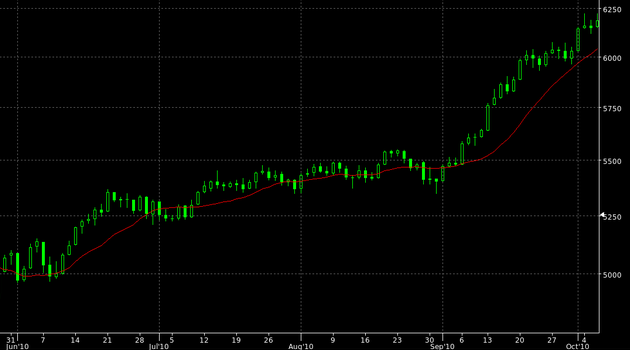
What Is Options Trading?
What is options trading, exactly? Well, the most mind-bendingly simple explanation I have ever heard of options trading can be found in this free webinar by Sean Allison.
That said, I will do my best to describe it for you here :)
You may have heard of options trading before while researching stocks and investments, or perhaps someone you know has mentioned it in the past.
However you came across the concept, it is important to understand options trading before you think about trading options or using them as a potential source of additional revenue.
But what are options?

In order to understand options trading, it's important to know what exactly "options" are in a financial context.
An option is a financial contract which gives the owner (or buyer of the options) the right to sell or buy an underlying asset at a pre-specified price before a certain contracted date.
The buyer does not actually have to buy or sell the option, but they have the ability to do so. If the owner does decide to buy or sell, then the seller of the option is obligated to fulfil this transaction.
Types of options
If you want to understand the question: “What is options trading?” then it is important to know the different types of options.
There are two main types of options, called "calls" and "puts." A call option is an option which allows the owner of the option to buy something at a pre-specified price; a put option allows the owner of the option to sell something at a pre-specified price.
Both “calls” and “puts” are commonly traded, although more information is usually available about “calls” due to their slight advantage in popularity over “puts.”
Options Classifications
If you want to answer “What is options trading”, you’ll also need to understand the different classifications of options. The primary options classifications are:
Exchange-traded options
An exchange traded option is an option which has a standardized contract which will typically come with an accurate price model based on the standardized contract.
The most common types of exchange traded options are options on future contracts, bond options, stock options, and interest rate options.
Dealer options
Dealer options, sometimes referred to as over the counter options, are options which are specifically traded between private parties. A dealer option is not listed on any public exchange.
Because these are private transactions, the contracts and terms of any dealer option will often be specifically designed for each transaction. The most common types of dealer options are options on swaps (or swaptions) as well as interest rate options.
Risk of Trading Options
Almost every type of investment comes with some inherent risk. Some investments, however, have more risk than others. Options trading is very risky (except, that is, when you are using this strategy!) and even a small misstep can result in a loss of most -- if not all -- of your invested money.
Options are inherently time sensitive and, as such, could result in a 100% loss of an investment if certain predicted factors (such as a prediction of a price change) do not occur according to plan. It is vital to have the proper training and education before you decide to go down the road of options trading.
<< Back to Alternative Strategies from What is Options Trading
<< Back to Property Investment Blueprint from What is Options Trading


